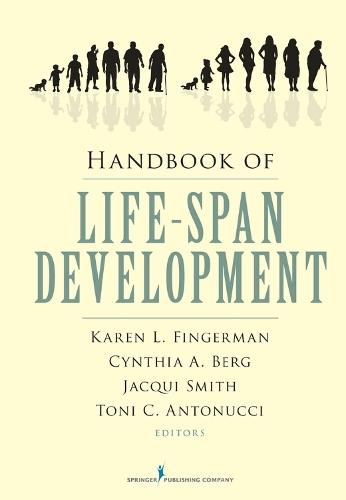Overview
The handbook is an impressive collection of research studies and theories provided by knowledgeable contributors on life-span development from conception to old age.""--Anthropology and Aging Quarterly The doubling of our average life span since the turn of the 20th century is considered by many scholars to be one of the most important changes in human existence. This definitive text is the only volume to fully address, through a multidisciplinary perspective, the biological, cognitive, and psychological development that occurs from infancy through old age, and how the sociocultural and institutional factors interface with these changes. Edited by leading research scholars in the field of life-span development, the volume also includes contributions of specialists in behavioral genetics, socioemotional selectivity theory, neuroscience, ecological models, and more. It examines the dynamics of close relationships and informal ties among the elderly population, child-parent attachment relationships as a life-span phenomenon, developmental tasks across the lifespan, continuity and discontinuity in temperament and personality, the sociocultural context of cognition across the life span, and variability in approaches to social problem solving from early to later life. Given the number of recent demographic shifts, it also explores issues related to fertility, life expectancy, environmental contexts, technology, immigration, and public policy. Key Features: Integrates the full life span from infancy through old age in each chapter Considers multidisciplinary perspectives that address personal relationships, cognitive development, and social, emotional, and physical health across the life span Situates life-span development in ecological contexts (e.g., socioeconomic, neighborhood, and immigration status) Provides a concise but thorough resource for graduate seminars in life-span-related studies Highlights future issues in all areas of life-span study
Full Product Details
Author: Karen Fingerman ,
Cynthia Berg ,
Jacqui Smith ,
Toni C. Antonucci
Publisher: Springer Publishing Co Inc
Imprint: Springer Publishing Co Inc
Dimensions:
Width: 17.80cm
, Height: 3.80cm
, Length: 25.40cm
Weight: 0.987kg
ISBN: 9780826110794
ISBN 10: 0826110797
Pages: 650
Publication Date: 30 December 2010
Audience:
Professional and scholarly
,
Professional & Vocational
Format: Hardback
Publisher's Status: Active
Availability: Manufactured on demand

We will order this item for you from a manufactured on demand supplier.
Author Information
Karen L. Fingerman is the Berner Hanley University Scholar and Associate Professor of Developmental and Family Studies at Purdue University. She is also Director of Purdue's Adult Family Research Center. Jacqui Smith is Professor of Psychology at the University of Michigan, a Senior Research Scientist in the Centre for Lifespan psychology at the Max Planck Institute for Human Development in Berlin, and a Professor of Psychology at the Free University of Berlin. Toni Antonucci, PhD, is Associate Dean for Academic Initiatives and Interdisciplinary Studies, Elizabeth M. Douvan Collegiate Professor of Psychology and Senior Research Scientist, Institute for Social Research Life Course Development Program, University of Michigan.




